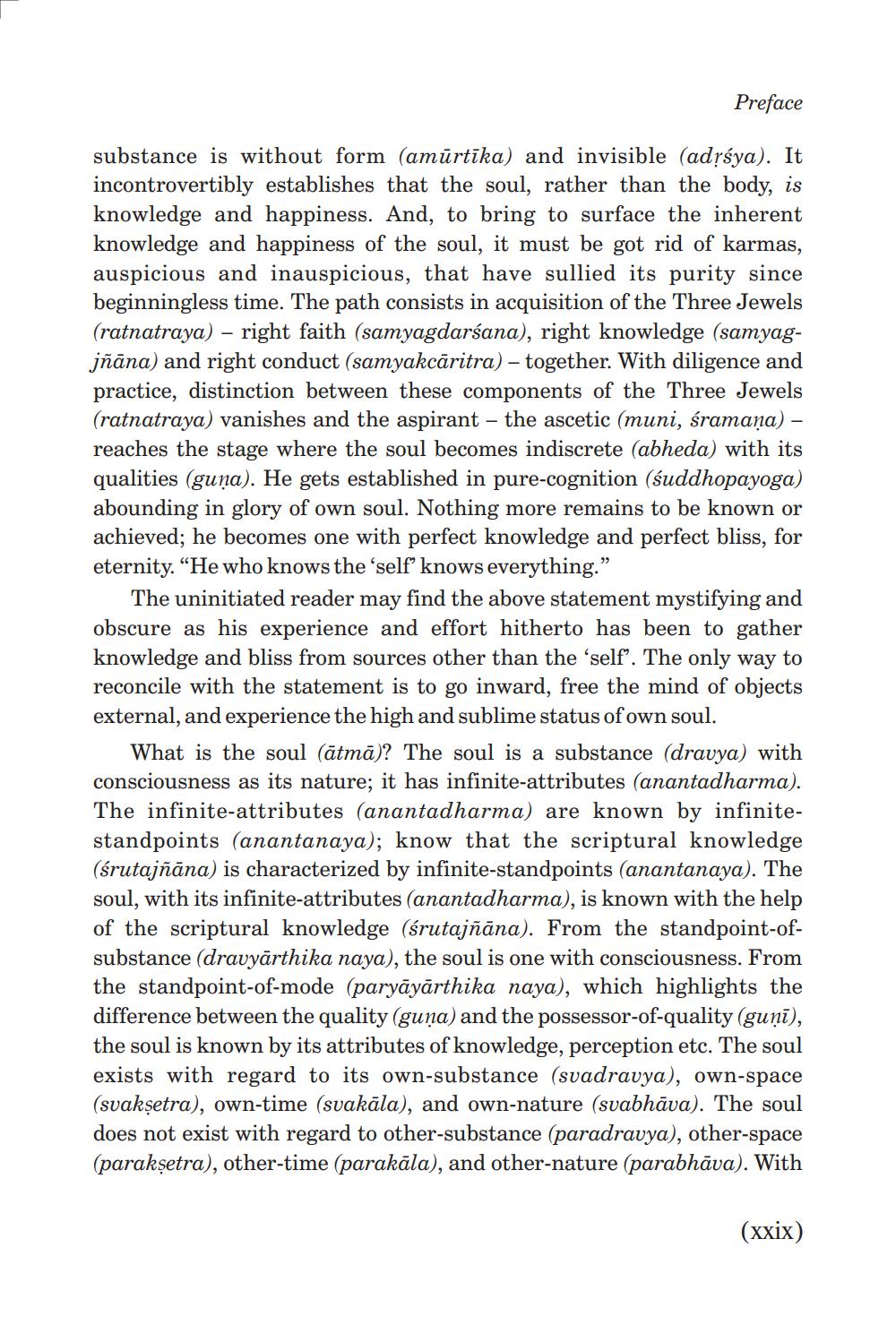________________
Preface
substance is without form (amūrtīka) and invisible (adrsya). It incontrovertibly establishes that the soul, rather than the body, is knowledge and happiness. And, to bring to surface the inherent knowledge and happiness of the soul, it must be got rid of karmas, auspicious and inauspicious, that have sullied its purity since beginningless time. The path consists in acquisition of the Three Jewels (ratnatraya) - right faith (samyagdarśana), right knowledge (samyagjñāna) and right conduct (samyakcăritra) - together. With diligence and practice, distinction between these components of the Three Jewels (ratnatraya) vanishes and the aspirant – the ascetic (muni, śramaņa) - reaches the stage where the soul becomes indiscrete (abheda) with its qualities (guņa). He gets established in pure-cognition (suddhopayoga) abounding in glory of own soul. Nothing more remains to be known or achieved; he becomes one with perfect knowledge and perfect bliss, for eternity. “He who knows the ‘self knows everything."
The uninitiated reader may find the above statement mystifying and obscure as his experience and effort hitherto has been to gather knowledge and bliss from sources other than the 'self”. The only way to reconcile with the statement is to go inward, free the mind of objects external, and experience the high and sublime status of own soul.
What is the soul (ātmā)? The soul is a substance (dravya) with consciousness as its nature; it has infinite-attributes (anantadharma). The infinite-attributes (anantadharma) are known by infinitestandpoints (anantanaya); know that the scriptural knowledge (śrutajñāna) is characterized by infinite-standpoints (anantanaya). The soul, with its infinite-attributes (anantadharma), is known with the help of the scriptural knowledge (śrutajñāna). From the standpoint-ofsubstance (dravyārthika naya), the soul is one with consciousness. From the standpoint-of-mode (paryāyārthika naya), which highlights the difference between the quality (guņa) and the possessor-of-quality (guṇī), the soul is known by its attributes of knowledge, perception etc. The soul exists with regard to its own-substance (svadravya), own-space (svakşetra), own-time (svakāla), and own-nature (svabhāva). The soul does not exist with regard to other-substance (paradravya), other-space (parakṣetra), other-time (parakāla), and other-nature (parabhāva). With
(xxix)




